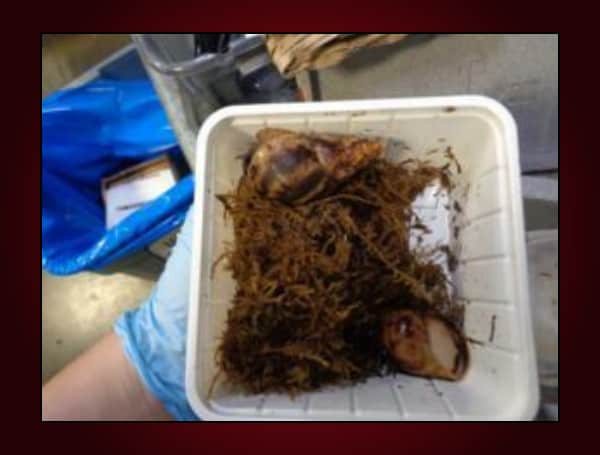U.S. Customs and Border Protection (CBP) agriculture specialists intercepted two giant African snails at the Louisville Port of Entry on May 18.
Authorities say the live snails were discovered at an express consignment facility during an inspection of a parcel arriving from Germany.
While intended for direct consumption, the snails pose significant health risks to humans and the environment and are considered an invasive species, according to CBP.
The snails were seized for further analysis.
“Our nation’s food supply is constantly at risk from pests and diseases not known to occur in the United States. These significant interceptions by our CBP agriculture specialists at the Louisville Port of Entry exemplify CBP’s continued commitment to safeguarding American agriculture,” said LaFonda D. Sutton-Burke, Director, Field Operations-Chicago Field Office.
In the news: Florida Ag Commissioner Wilton Simpson Defends Chinese Property Law
According to the USDA, giant African snails can carry a parasitic nematode that can lead to meningitis in humans and due to an appetite, that includes at least 500 different types of plants, along with plaster and stucco, they can cause significant damage to structures and ecosystems.
They are considered a prohibited organism in the United States, though they are popular for consumption and even kept as pets in other countries.
“CBP’s agriculture specialists mitigate the threat of non-native pests, diseases, and contaminants entering the United States,” said Thomas Mahn, Port Director, Louisville.“ CBP agriculture specialists have extensive training and experience in the biological sciences and agricultural inspections, inspecting tens of thousands of international passengers and cargo shipments at our air, land, and sea ports of entry.”
Android Users, Click To Download The Free Press App And Never Miss A Story. Follow Us On Facebook and Twitter. Signup for our free newsletter.
We can’t do this without your help; visit our GiveSendGo page and donate any dollar amount; every penny helps.

